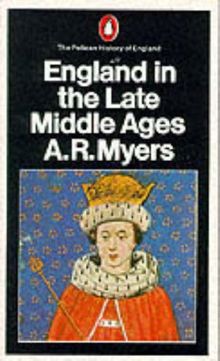
Part of Series
The seventeenth century in England was a period of unprecedented growth and fulfilment; the key century of the modern era. When the century opened, England was a comparatively poor nation on the fringes of Europe. When it closed, she was one of the major powers. Along the way the country had surmounted a civil war and a major rebellion. Yet her institutions and social structure were, if anything, strengthened: in fact, during this century Parliament evolved into something approaching its present form and function, and the great philosophers Hobbes and Locke fashioned new and far-reaching theories of political obligation to accommodate it. At the same time, scientists, led by Newton, were causing a reappraisal of the way the physical world was viewed, and radicals like John Lilburne were (prematurely) laying the foundations of proletarian socialism. Stuart England is the subject of continual and active research, and Professor Kenyon's survey presents a unified picture of this contentious century, as well as featuring a full and up to date critical bibliography. 'Has the intellectual vigour, the boldness of judgement, the sharp character sketches and the sheer readability that one has come to expect of its writer' - History


